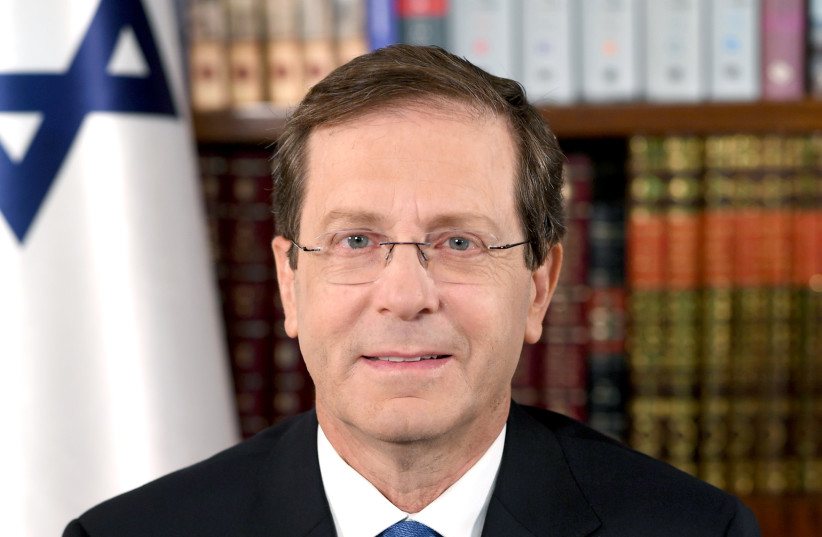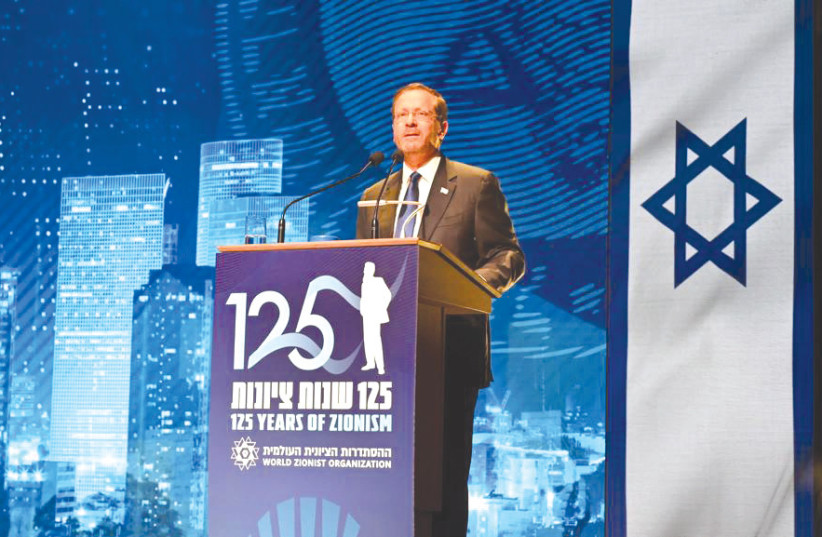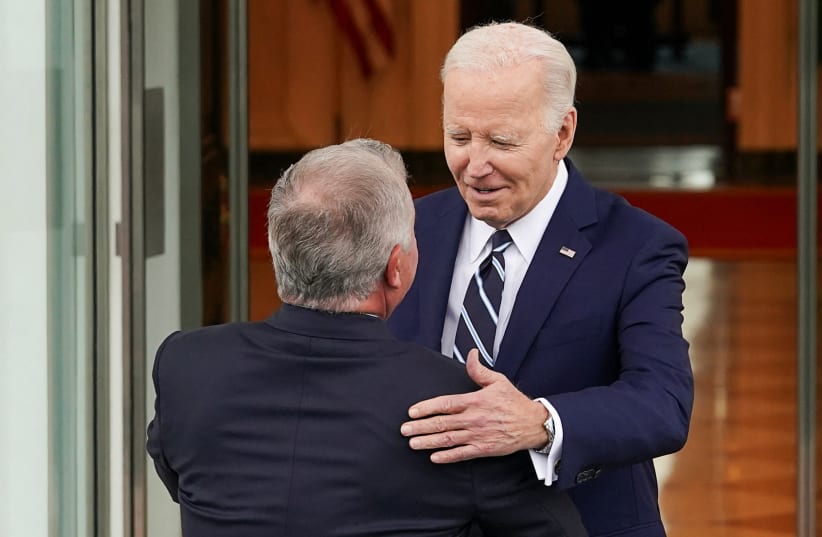"And they that shall be of thee shall build the old waste places: thou shalt raise up the foundations of many generations; and thou shalt be called, The repairer of the breach, Therestorer STRONGS 7725: ב shuwb, shoob; a primitive root; to turn back (hence, away) transitively or intransitively, literally or figuratively (not necessarily with the idea of return to the starting point);of paths to dwell in." — ISAIAH 58:12
Zionism was founded to build a Jewish national home. By working hand in hand, Jews in Israel and the Diaspora made that dream come true. But the establishment of a Jewish state was stage one of the Zionist vision, not its culmination. And it was the start of a great Israel-Diaspora partnership, not its end.
As Israel’s detractors try to turn “Zionist” into a dirty word, I believe that we have a duty to reclaim Zionism as a statement of common purpose between Israeli and Diaspora Jews, in pursuit of tikkun olam – healing our broken world.
This was the message I brought with me to the historic event celebrating the 125th anniversary of the First Zionist Congress in Basel in August. And this is the message that I would like readers to reflect on as they read this special Magazine and the thought-provoking question at its heart.
We must reclam Zionism as a statement of common purpose for Jews
By any measure, Zionism has been a tremendous success: It has revived an ancient language, restored dignity and security to a battered people, and created a vibrant and dynamic national culture. But Zionism represents a historical revolution for another reason: Zionism created a powerful vehicle for Jewish collective action. Put simply, it is through Zionism that the Jewish people are making some of their most dramatic contributions to humanity.
Zionism has created a framework for Jews to work together, in science and culture, technology and the arts, defense and religion, in ways previously unimaginable. It has created a platform for Jews to shine their light on the world and put into practice the wisdom, the values, and the ideals of generations.
PRESIDENT ISAAC Herzog addresses the 125 Years of Zionism conference in Basel on Monday. (credit: HAIM ZACH/GPO)
I recently returned from Her Majesty Queen Elizabeth II’s funeral, and I was very proud to meet with so many world leaders who came up to me to express wonderment and admiration at Israel’s achievements. Sometimes people outside our borders see things more clearly than we can, in our day-to-day lives. Israel, in all facets of its diverse society, is a huge force for good in the world, thanks to the collective action facilitated by Zionism.
As mentioned, Israel’s detractors are trying to turn “Zionist” into a dirty word. In 1975, it was the UN General Assembly resolution equating Zionism with racism, which my father famously tore up at the UN plenary (it was revoked 16 years later). Today, it is anti-Israel activists using “Zio” as a slur, leading one major social media company recently to consider censoring “Zionist” as a curse word! This is a despicable and often antisemitic attempt to break our self-confidence.
At the same time, we are witnessing two fascinating shifts in the Diaspora. On the one hand, Israeli culture is increasingly shaping and defining Jewish culture. But on the other, many Jews, especially young Jews, are questioning what meaning Israel and Zionism have for their lives, especially as they come under pressure from those challenging Zionism’s basic legitimacy.
It is in the face of these twin challenges that we must reclaim Zionism.
I BELIEVE that the meaning of Zionism is chiefly responsibility: responsibility for our deep-rooted Jewish identity, responsibility for our cohesion as a diverse and opinionated people, and responsibility for the well-being and prosperity of our precious Jewish and democratic state. Zionism means responsibility to address our challenges together, as one people, in the framework of our multi-ethnic, multicultural state. It means responsibility not only for our shared fate but also for our shared destiny.
It is through Zionism that the Jewish people, as a collective, are able to make magnificent contributions to whole worlds of intellect and culture, to fighting the global climate crisis, to dispatching emergency aid to disaster zones, to developing revolutionary technologies, and to setting a moral example.
It is through Zionism, moreover, that the Jewish people can revitalize aspects of Jewish tradition in our ancestral homeland, endowing them with new meaning and allowing Jews to live in a Jewish space, in Jewish time, in Hebrew. Zionism is an indispensable mix of old and new, and it is through Zionism’s link between land, people and state that we can connect to our deepest roots and tap into ancient reservoirs of meaning, fulfilling a millennia-old dream.
Zionism, to borrow a famous phrase, does not mean the “end of history” for the Jewish people. Zionism has not solved the great dilemmas of Jewish history. It has not stopped the historical pendulum swinging between the demand for normality and the pursuit of individuality, the demand to blend into the family of nations and the pursuit of a unique Jewish destiny.
Instead, Zionism created a platform for Jews to explore their identity as an independent political community. It created a “safe space,” if you will, where the Jewish people could continue arguing and debating about their big questions, safe from the fears that had always haunted them: fears of antisemitic persecution on the one hand, and fears of the erasure of their distinctive culture on the other.
No less importantly: Zionism is not just the mission of Jews living in our ancestral homeland. It is a collective endeavor for Diaspora Jews, too. It is a project that unites us, a shared commitment to making our world a better place. For Diaspora Jews, Israel is a home away from home, a place where they can contribute to and draw from vibrant culture, and where their outside perspectives can enrich our sense of global yet grounded peoplehood.
Only together can we address our shared challenges. Only together can we work for the sake of the future, in the name of the past. We must reclaim Zionism, therefore, as a positive affirmation of our collective resolve; as a source of pride in what we can achieve when we work together, in body and spirit.
This holiday, as we read this Magazine in our sukkot, let us remember that the Wandering Jew now has a permanent home, and let us reclaim our sense of purpose about the good that we can do with this home.
I wish you all a happy Sukkot, and happy reading.
The writer is the 11th president of the State of Israel.





